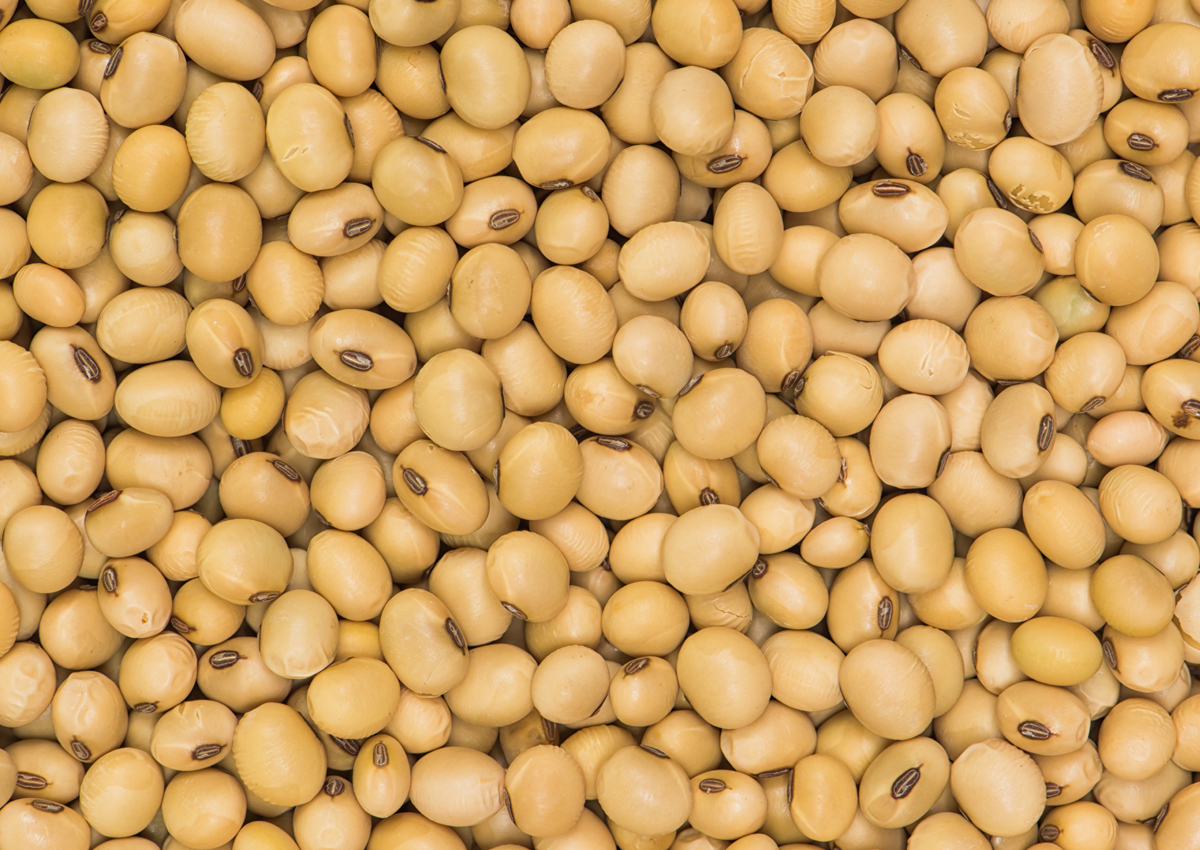
Wild Genes to Improve Nitrogen Fixation in Soybeans
August 26, 2020| |
Scientists in China are studying wild soybeans to find genetic regions involved in interacting with beneficial microbes that have been lost in domesticated soybeans. The research group grew soybean lines that included small regions of DNA from their wild ancestors and found that some lines responded differently to different strains of the beneficial bacteria known as Sinorhizobium fredii.
The different responses, the group found, were related to whether or not the bacterial strains had fully functional type 3 secretion systems (T3SS), which are used by bacteria to inject protein effectors into plant cells. They followed a dirigent protein named DRR1 and found that it interacted genetically with the bacterial T3SS system to alter the number of nodules a root system forms.
This new genetic approach will help researchers and scientists access some of the genetic diversity of soybean ancestors to improve biological nitrogen fixation, an important part of sustainable agriculture, in modern soybean cultivars.
For more details, read the paper in The American Phytopathological Society.
| |
You might also like:
- FSANZ Says New GM Soybeans Safe, Invites Public for Comments
- Two GM Soybeans to Stay in the Market After EFSA Re-Evaluation
- BASF Launches Herbicide Tolerant Stacked Traits Soybeans
Biotech Updates is a weekly newsletter of ISAAA, a not-for-profit organization. It is distributed for free to over 22,000 subscribers worldwide to inform them about the key developments in biosciences, especially in biotechnology. Your support will help us in our mission to feed the world with knowledge. You can help by donating as little as $10.
-
See more articles:
-
News from Around the World
- ISAAA Webinars: Animal Biotechnology, The Next Frontier
- Florida Board Allows First GM Mosquito Trials in the US
- Wild Genes to Improve Nitrogen Fixation in Soybeans
- Filipino Regulators Learn from International Experts in Regulating Animal Biotech Products
- Russian Biologists Sequence Fusarium Genome
-
Research Highlights
- Research Shows Bt Cotton's Performance in Rainfed Areas
- Antagonistic Genes Modify Rice Plant Growth
-
Plant
- Root Angle Modifications Lead to Improved Rice Yields in Saline Fields
- Scientists Re-evaluate Rice Green Revolution Gene
-
Health
- MassBiologics Identifies Antibodies that may Protect Against COVID-19
- Hospital in Israel Starts Trials for the Fastest COVID-19 Test
- Scientists Discover Mutation Making SARS-CoV-2 Milder
-
Read the latest: - Biotech Updates (February 18, 2026)
- Gene Editing Supplement (January 28, 2026)
- Gene Drive Supplement (February 22, 2023)
-
Subscribe to BU: - Share
- Tweet

